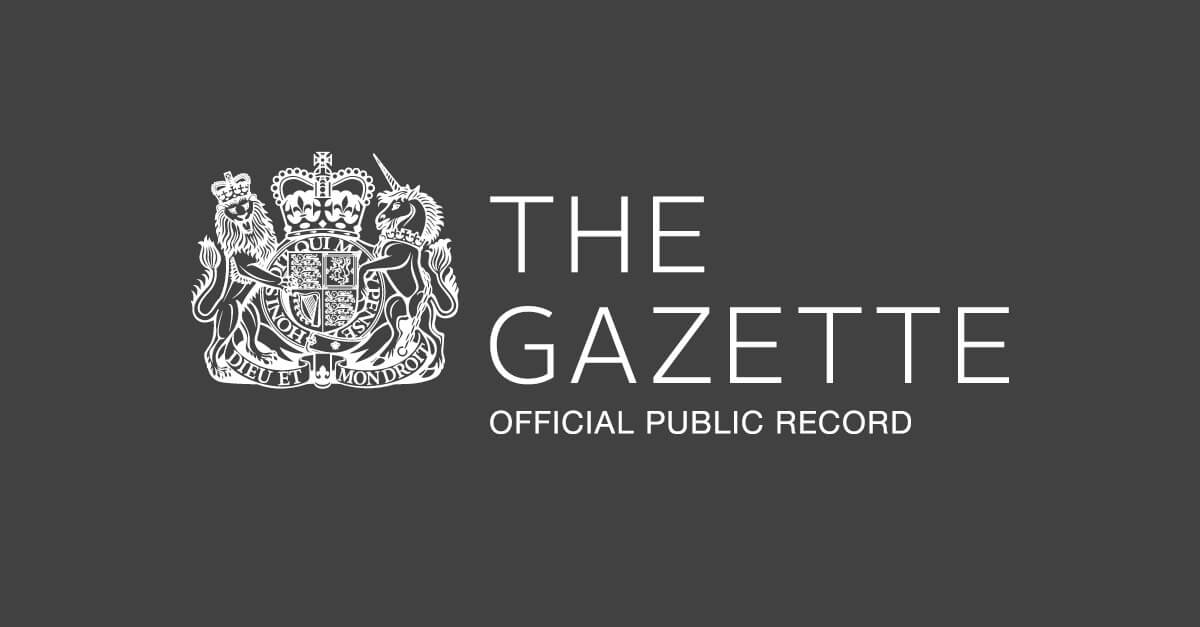A Thorough Evaluation of the Lawful Responsibilities Bordering Gazette Notice Magazine
The realm of gazette notification magazine is a maze of lawful intricacies that require thorough interest. From the strict lawful needs controling the web content of notices to the ramifications of non-compliance, browsing this landscape is no unimportant task. Recognizing the vital regulations that determines these commitments is extremely important for entities obligated to distribute notifications with this official channel. Nevertheless, the complexities extend beyond simple statutory obligations, discussing ideal techniques that can reinforce compliance initiatives. As we decipher the layers of lawful responsibilities bordering gazette notification magazine, a detailed analysis is critical to realize the gravity of these responsibilities and the implications of stopping working to abide by them.
Legal Requirements for Gazette Notices

Legal demands for Gazette notices dictate the certain requirements that need to be fulfilled for the magazine of main alerts in the Gazette. These needs are important to ensure openness, responsibility, and lawful validity in the circulation of details to the public. One key requirement is the accurate and complete disclosure of information in the notification. This includes information such as names, days, addresses, and any various other pertinent specifics that are vital for the notice to be useful and workable.
In addition, legal demands commonly mandate the prompt submission of notifications to the Gazette. Timeliness is crucial to ensure that the details reaches the designated receivers within an affordable duration, enabling them to take needed actions or make educated choices quickly. Failure to follow these timelines might lead to legal effects or provide the notification inadequate.

Implications of Non-Compliance
Non-compliance with the laws established forth for Gazette notification magazine can result in legal repercussions, monetary charges, and reputational damages for the entity or individual responsible for the publication. Failure to websites release notifications in the Gazette within the defined timeframe or inaccurately disseminating information can lead to challenges in applying rights, contractual commitments, or legal procedures. In addition, falling short to meet the lawful commitments bordering Gazette notification publication might result in the invalidation of the notice itself, providing it legally ineffective.
Secret Regulation Governing Magazine
Given the essential ramifications of non-compliance with Gazette notice magazine requirements, recognizing the key legislation regulating this procedure is paramount for making certain legal adherence and keeping transparency. Additionally, particular markets may have their own guidelines regarding notification publication, such as environmental agencies needing certain announcements to be made public for openness and liability purposes. Recognizing these legislative frameworks is essential for companies and individuals liable for providing Gazette notices to stay clear of lawful repercussions and promote the principles of great administration.
Entities Bound to Publish Notifications
Entities accountable for the magazine of Gazette notifications play an important duty in making sure transparency and legal compliance within the structure of governmental regulations. Official gazette workplaces offer as the primary platforms for the publication of legal notifications like this at the national, state, or neighborhood degrees, guaranteeing that such info is available to the public.
These entities are obligated to publish notifications quickly and precisely to follow lawful requirements and maintain the concepts of openness and accountability in governance. Failure to publish needed notifications in a timely fashion can result in legal repercussions, undermining the trustworthiness and efficiency of the regulatory structure. Consequently, it is crucial for these entities to fulfill their obligations faithfully to maintain public trust fund and make certain that stakeholders are educated of relevant lawful growths.
Ideal Practices for Compliance
To guarantee adherence to legal commitments surrounding Gazette notice magazine, it is essential for organizations to execute finest practices for conformity that enhance transparency and accountability in distributing crucial information to stakeholders. One of the essential finest practices is to develop clear inner procedures and guidelines for Gazette notice magazine. This consists of designating obligation to certain people or departments, establishing timelines for preparing and reviewing notifications, and making sure compliance with magazine demands.

Final Thought
Finally, comprehending the lawful responsibilities bordering gazette notice magazine is essential for entities to abide by crucial regulations. Failure to release notices in the gazette can have major ramifications, consisting of lawful effects. It is essential for organizations to abide by finest practices for compliance to ensure they accomplish their obligations under the legislation. Compliance with read review these requirements is needed to preserve openness and support the regulation of regulation.